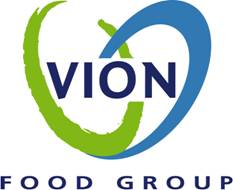Case 1: VION

Between actors in a pork supply chain exchange of goods and information take place. These exchanges are called transactions. Transactions need to be coordinated depending on the nature of the exchange, like the purpose of the exchange, the nature of communication, the degree of formality, and the type of contract. For each relationship these characteristics are described. The actors involved in each transaction relationship are the most important players in the VION pork supply chain:
Breeder organization - Breeder
Producer - Veterinarian
Producer - Transporter, Producer - Slaughterhouse
Transporter - Slaughterhouse/Processor
Slaughterhouse/Processor - Retailer
We can observe currently that an increasing formalization of relations is taken place in the fresh meat chain. This is a result of more demanding legislative requirements (see also lesson 5) and quality standards (e.g., IKB (see chapter 1)), which requires a more structured administrative process and a clear definition of responsibilities in the chain. For example, VION requires farmers to obtain feed from producers who have product liability insurance for a certain amount of coverage. This in turn, has led the large feed producer to develop a collective quality management system with other parties in Trusq (to control and secure a safe supply of inputs), which also made it possible to obtain also a collective product liability insurance
From January 1, 2008, slaughterhouses have to collect information on so-called food chain information (VKI - see also lesson 5). This information is, in essence, information on the health situation of pig to be slaughtered. Based on this information decisions have to be taken at slaughtering with respect to measures to assure food safety. This information needs to be supplied by farmers 24 hours in advance. Availability of such data is incorporated in IKB. Information should be available in IKB databases to reduce delaying paperwork. In the workbook Hygiene Code for pig slaughterhouses (see PVE), the procedure for satisfying VKI has recently been added.
The European Commission wants to promote Good Practice in freight transport (EU 2000 Good Practice in Freight Transport), a sourcebook of the European Commission, to reduce environmental costs, like pollution and noise. GTP is a global standard for achieving these goals, which can be specified by transportation companies to achieve EU aims. GTP satisfies IKB requirements.